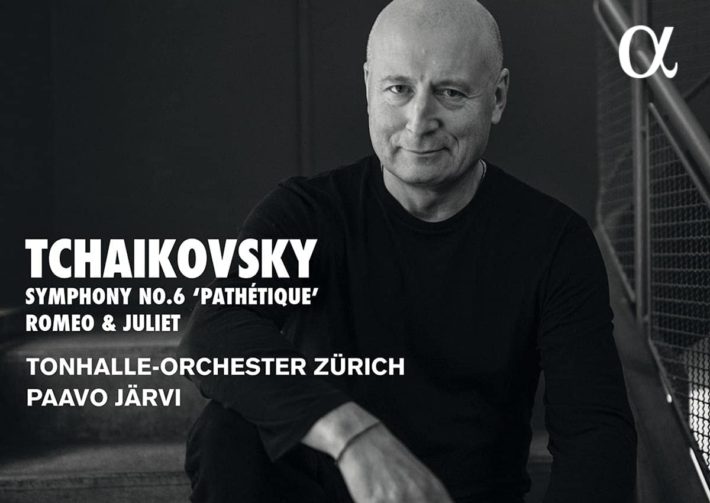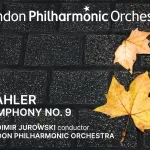The Tonhalle Orchestra’s Tchaikovsky symphony cycle approaches its competition with this new release. Paavo Järvi recorded this exact coupling several years ago with the Cincinnati Symphony Orchestra (Telarc) when he was its Music Director. It featured excellent orchestral playing and typically impressive Telarc sound, but the performances were far too emotionally reticent for music that seeks to express emotional extremes.
These new performances are far more involving. The opening Adagio of the first movement is masterfully sculpted, Järvi and his players tending to each phrase and orchestral color with great care to establish a suitably forlorn and lonely atmosphere. The Allegro that follows reveals the excellence of Alpha’s recording, winds balanced more prominently than in many recordings, allowing us to hear a wealth of orchestral detail. The Tonhalle strings have never sounded better, with precise articulation, excellent balance, and a rich tapestry of colors.
Unfortunately, at 5’08” and then again at 5’27” Järvi adds an unmarked subito-piano/crescendo to the melody, seriously disrupting the mood of rapt beauty his players have created. Moreover, when this same music returns later, Järvi does not ask for the same marking, leaving us to wonder what the purpose of the change was in the first place. Repeated listening only makes this addition seem more arbitrary and unconvincing.
The quadruple-forte at 9’35” initiates a thrillingly fast tempo, the string lines articulated with phenomenal precision, but the orchestra, at least as recorded here, lacks the tonal heft one hears in performances by Gatti (RHO/Harmonia Mundi), Karajan (BP/Warner Classics) and Petrenko (RLPO/Onyx). Järvi drives the music hard, masterfully building tension as the music hurtles towards its destruction (and listen to how the strings dig in at 12’41”). But at the moment of greatest emotional pain (12’59), the trombones don’t cry out in agony – they sing when they should scream. In the hands of Karajan and Mravinsky this is a moment of existential agony – anything less won’t do.
Related Classical Music Reviews
- Review: Tchaikovsky – Symphony No. 5 – Tonhalle, Paavo Järvi
- Review: Tchaikovsky – Symphony No. 4, Leshnoff – Double concerto – Honeck
- Review: Tchaikovsky – Violin Concerto – Lozakovich, Spivakov
Järvi’s second movement is wholly successful, the playing especially light and graceful. Järvi skates around the music’s darker moments, whereas Gatti and Petrenko observe those moments more acutely, suggesting that even at our happiest times, sadness is not far away. The third movement, marked Allegro molto vivace, is also fabulous, technically assured and perfectly balanced (though one misses the power of Telarc’s bass drum in the Cincinnati recording). The woodwinds, especially the clarinets, are particularly characterful, and the clarity brought to the various lines and shifts in color is masterly. This is sensitive, technically assured and virtuosic playing (though Järvi’s dynamic tampering in the final chord is a small annoyance).
The ardor of the playing in the final movement’s opening bars signals a deeper emotional connection. Tempo and rubato are beautifully judged, pointing the way towards the first great climax (4’26” forward) though I wish the brass had been allowed a more savage presence. But at 6’54”, as the music progresses towards the emotional peak of the work, Järvi again moderates the emotional excess the music demands. The searing desperation and angst of this moment should overwhelm the listener. Järvi is unwilling, or unable, to let that happen.
The performance of “Romeo and Juliet” has similar strengths and weaknesses. The technical accomplishment of the playing is unfailingly impressive, with expert pacing and wonderful dynamic control. Yet when the powerful climaxes arrive, they fail to evoke an emotional response. The playing has plenty of excitement and energy and power but turn to Gatti and suddenly one really experiences the wild abandon and struggles of young love.
In an earlier review of these same forces performing the Fifth Symphony, I asked if Järvi might find Tchaikovsky’s heart-on-sleeve emotion over the top. Having listened to all the performances released so far (Nos. 2 and 4-6; Nos. 1 and 3 are yet to be released), the answer appears to be “yes.” And for listeners who agree with Järvi’s aesthetic view, these performances will have a strong appeal. But for those who believe Tchaikovsky’s music is meant to be emotionally excessive, the recordings mentioned above remain prime recommendations.

Tchaikovsky – Symphony No. 6 (“Pathétique“), Romeo and Juliet
Tonhalle-Orchester Zürich, Paavo Järvi – Conductor
Alpha Classics, CD 782
Included with an Apple Music subscription:
Latest Classical Music Posts
- Review: Schumann – Fantasie, Humoreske, Faschingsschwank aus Wien – Nikolai Lugansky
- Review: Mahler – Symphony No. 9 – London Philharmonic Orchestra, Vladimir Jurowski
- Review: “Piano Heroines” – Claire Huangci
- Review: Bach – Goldberg Variations – Yunchan Lim, Piano
- Review: Elgar – The Dream of Gerontius – Huddersfield Choral Society, Orchestra of Opera North, Martyn Brabbins
- Notable Classical Music Box Sets, February 2026
Read more classical music reviews or visit The Classic Review Amazon store

















